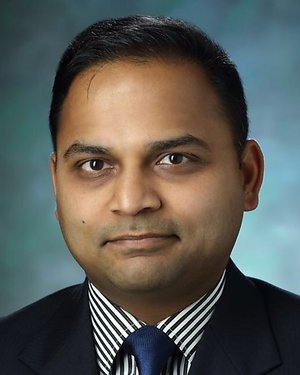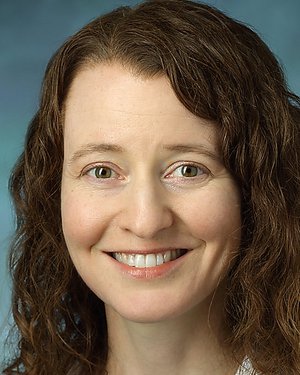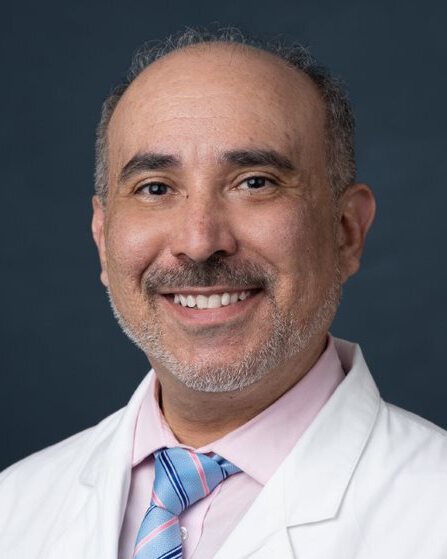Research Lab Results
-
AI for Metabolism and Imaging
Our research explores and integrates cutting-edge techniques in body composition analysis, nuclear endocrinology, metabolic and molecular imaging, and innovative machine learning methods.
Principal Investigator
-
Pulmonary Infection and Inflammation Research Lab
The Jia lab performs basic and translational research into the mechanisms of and therapeutic strategy for viral and bacterial infection-induced inflammatory lung diseases, one of the leading causes of death in pulmonary diseases, especially for the ongoing pandemic of the SARS-CoV-2 mediated COVID-19. Our work has identified novel roles of Angiotensin-converting enzyme 2 (ACE2) in the inflammatory response to viral and bacterial lung infection and its complex contributions into the pathogenesis and disease progression and outcome of COVID-19. In seeking to translate these findings to clinical studies, we have been working on a collaboration with other investigators, developing novel diagnostic, preventive, and therapeutic tools in combating the devastating COVID-19, even in the era of effective vaccine prevention. These studies are funded by NIAID.
-
Jonathan Walsh Lab
The Jonathan Walsh Lab is currently researching longitudinal trends of diagnostic and procedural utilization in pediatric patients with head and neck complaints.
-
Robert Gilman Lab
Research in the Robert Gilman Lab focuses on disease control. Our work led to the development of microscopic-observation drug-susceptibility (MODS), a rapid tuberculosis diagnostic technique. We continue to conduct infectious disease research based at Peru’s Universidad Peruana Cayetano Heredia.
-
Peter van Zijl Laboratory
The Peter van Zijl Laboratory focuses on developing new methodologies for using MRI and magnetic resonance spectroscopy (MRS) to study brain function and physiology. In addition, we are working to understand the basic mechanisms of the MRI signal changes measured during functional MRI (fMRI) tests of the brain. We are also mapping the wiring of the brain (axonal connections between the brains functional regions) and designing new technologies for MRI to follow where cells are migrating and when genes are expressed. A more recent interest is the development of bioorganic biodegradable MRI contrast agents. Our ultimate goal is to transform these technologies into fast methods that are compatible with the time available for multi-modal clinical diagnosis using MRI. -
Peter Abadir Lab
The Abadir Lab focuses on uncovering the molecular mechanisms underlying frailty, resilience, and age-related diseases to bridge the gap between basic science and clinical applications. Grounded in translational research, the lab investigates the intricate interplay between mitochondrial biology, the renin-angiotensin system (RAS), and chronic inflammation, with an emphasis on their roles in physical and cognitive decline.
Key Areas of Research
- Mitochondrial and Angiotensin Biology
- Discovery and exploration of the mitochondrial angiotensin system (MAS) as a critical regulator of cellular energy, inflammation, and resilience.
- Investigating age-related mitochondrial dysfunction and its contribution to frailty, chronic inflammation, and neurodegeneration.
- Biomarker Development
- Identification of novel biomarkers for aging-related frailty and resilience, including cell-free DNA fragments and kynurenine metabolites.
- Development of diagnostic tools for early detection of physical and cognitive decline.
- Innovative Therapeutics and Bioengineering
- Designing nano-delivery systems for targeted drug delivery to mitochondria, enhancing wound healing and reversing cellular senescence.
- Integration of artificial intelligence and engineering to create advanced diagnostic tools for assessing frailty and aging-related conditions.
- AI and Technology in Aging
- Leveraging artificial intelligence and bioengineering to address challenges in geriatric medicine through collaborations with the Johns Hopkins AI & Technology Collaboratory for Aging Research (AITC) and the Gerotech Incubator Program.
Our Approach
The Abadir Lab employs a multidisciplinary methodology, combining molecular biology, bioinformatics, and engineering to tackle the pressing health challenges of aging populations. By fostering collaboration between clinicians, scientists, and engineers, the lab ensures that discoveries translate into tangible benefits for older adults.
Translational Impact
With a focus on frailty, inflammation, and cognitive decline, the Abadir Lab contributes to the development of personalized interventions and precision medicine approaches. Our work has laid the foundation for:
- Repurposing drugs like losartan and valsartan for treating aging-related chronic wounds.
- Unveiling the role of mitochondrial dysregulation in Alzheimer’s disease and frailty.
- Innovating tools for clinical assessments of resilience and functional decline.
Collaborations and Mentorship
The Abadir Lab is committed to training the next generation of scientists, fostering an interdisciplinary environment where students and postdocs explore cutting-edge aging science. Collaborations with the Johns Hopkins GeroTech Incubator Program and the Translational Aging Research Training Program (T32) further enrich this ecosystem of innovation.
Join Us
Whether you're a researcher, student, or collaborator, the Abadir Lab welcomes individuals passionate about transforming aging research into clinical practice.
- Mitochondrial and Angiotensin Biology
-
Pediatric Cardiology Core Imaging Laboratory
The lab’s assets include three MRI systems available for pediatric studies, cardiac imaging processing, cardiovascular imaging and therapeutic ultrasound. A robust echocardiogram program conducts 10,000 transthoracic echocardiograms and 1,300 fetal echocardiograms per year, and maintains a database with 10 years of data. -
Aliaksei Pustavoitau Lab
The Aliaksei Pustavoitau Lab conducts research on models and mechanisms of impaired consciousness in patients who have suffered acute brain injury. Examples of our work include a study on the mechanisms of neurologic failure in critical illness and another on the use of intensivist-driven ultrasound at the PICU bedside. We also have a longstanding interest in patient safety and quality of care in the ICU setting.
Principal Investigator
Department
-
Janet Record Lab
Research in the Janet Record Lab focuses on medical education and patient-centered care. We’re currently developing a curriculum for internal medicine residents in the inpatient general medicine service setting. The curriculum teaches residents to use hand-carried ultrasound for imaging the inferior vena cava to assess volume status.
-
Jinyuan Zhou Lab
Dr. Zhou's research focuses on developing new in vivo MRI and MRS methodologies to study brain function and disease. His most recent work includes absolute quantification of cerebral blood flow, quantification of functional MRI, high-resolution diffusion tensor imaging (DTI), magnetization transfer mechanism, development of chemical exchange saturation transfer (CEST) technology, brain pH MR imaging, and tissue protein MR imaging. Notably, Dr. Zhou and his colleagues invented the amide proton transfer (APT) approach for brain pH imaging and tumor protein imaging. His initial paper on brain pH imaging was published in Nature Medicine in 2003 and his most recent paper on tumor treatment effects was published in Nature Medicine in 2011. A major part of his current research is the pre-clinical and clinical imaging of brain tumors, strokes, and other neurologic disorders using the APT and other novel MRI techniques. The overall goal is to achieve the MRI contrast at the protein and peptide level without injection of exogenous agents and improve the diagnostic capability of MRI and the patient outcomes.


